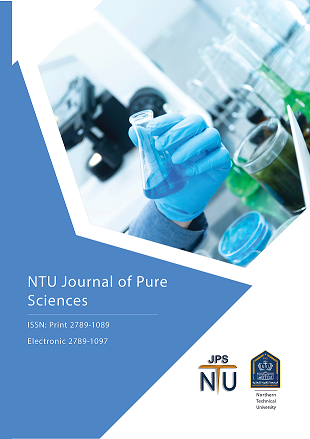Prevalence of Epstein-Barr virus among hemodialysis patients in Kirkuk city
DOI:
https://doi.org/10.56286/ntujps.v2i4.574Keywords:
Epstein-Barr virus, ELISA, Hemodialysis, Patients, InfectionAbstract
Epstein-Barr virus infection has a significant global impact on adults. In individuals
with a strong immune system, the infection usually remains inactive and is
effectively controlled. However, for those with compromised immune systems like
hemodialysis patients, the virus can lead to severe illnesses that endanger lives.
This study aims to evaluate the presence of IgM and IgG antibodies against the
Epstein-Barr virus in hemodialysis patients and explore potential connections
between the prevalence of these antibodies, the duration of dialysis (whether
exceeding or less than one year), and the frequency of weekly dialysis sessions. The
research carried out in Kirkuk city encompassed 91 individuals undergoing
hemodialysis and a control group of 50 individuals. Blood serum samples were
collected from all participants in the study and subjected to analysis using the
ELISA technique. The recent findings revealed that among hemodialysis patients,
the prevalence of EBV IgM/IgG antibodies was 7.6% and 42.8% respectively, while
in the control group, these values were 0% and 8%. The presence of EBV IgM and
IgG antibodies showed a notable correlation with the younger age group. No
statistically significant differences were noted concerning the patients' gender.
Notably, EBV IgM levels were elevated in patients undergoing dialysis for over
a year (71.4%), displaying significant divergence with a p-value of 0.015. The
prevalence of Epstein Barr virus was higher in hemodialysis patients compared to
the control group. Additionally, the occurrence of acute EBV infection showed a
strong association with the duration of dialysis and the frequency of weekly dialysis
sessions.
Downloads
Downloads
Published
Issue
Section
License
Copyright (c) 2023 NTU Journal of Pure Sciences

This work is licensed under a Creative Commons Attribution 4.0 International License.
This work is licensed under a Creative Commons Attribution 4.0 International License (CC BY 4.0), which permits unrestricted use, distribution, and reproduction in any medium, provided the original work is properly cited.









